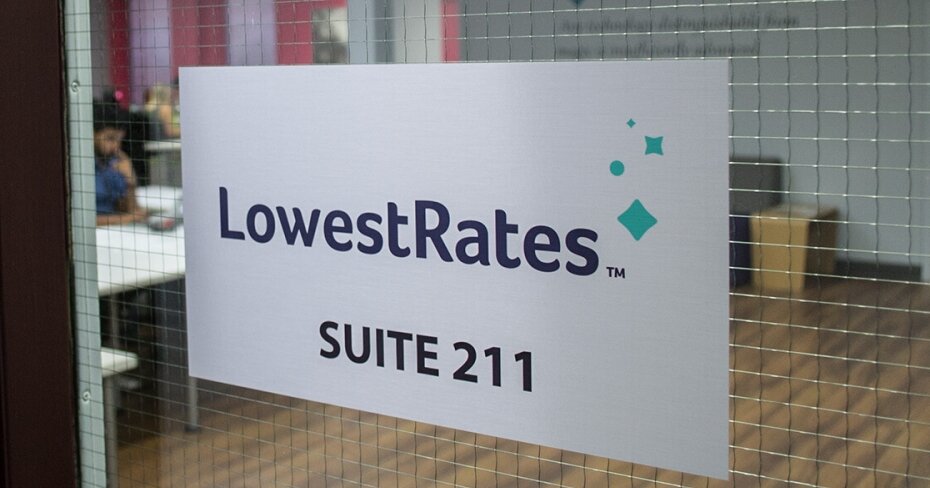Bring your ‘A’ game, but don’t expect a gold star: advice from a former intern
By: Dominic Licorish on October 11, 2016
Editor's Note: A few months ago, the LowestRates team welcomed Ankur Gupta, a Queen's University undergrad, as a marketing intern. Switching from student life to full-time work is never easy, but Ankur jumped in with both feet, figured it out, and did what most people hope to do when taking an internship: he earned himself a real job and expanded his horizons in the process. At the end of his internship, he had some advice to share for future interns or new graduates transitioning into the workforce.
When I got a job with LowestRates Inc, I honestly wasn’t sure what to expect. I was the only intern they were hiring, it would be my first time living in Toronto, and, on top of that, I didn’t know a lot about Financial Technology. It’s safe to say that I had a lot to be nervous about. However, what I quickly learned in my first couple days with the company is that working for a startup is an entirely unique experience. After 4 months of working at LowestRates, I learned a lot about myself, Toronto startup culture, and, ultimately, what it takes to thrive in a fast-paced, high-growth environment.
Work vs student life
Today, Canadian undergraduate students are fortunate to have the opportunity to complete internships, gain real world experience, and learn tangible skills that are often not recreatable within an educational setting. However, transitioning from 8 months of school to 4 months of work isn’t an easy task.
In grade school, as you make your way through and eventually go off to university, you realize a lot about yourself and your habits. How you work within the framework of school and the habits you develop there are, ultimately, what make you successful in an educational environment. In a work setting, all of that changes. Your habits from the past, although applicable, will not necessarily make you successful.
In school, the onus is on the individual to complete a given assignment or quiz. If you choose not to participate, it’s ultimately you and your GPA that suffer. However, tasks at work, especially at a startup, are significantly more crucial. The option to opt-out simply doesn’t exist. In a startup, every employee — including the intern — plays a crucial role in the vision and success of the company.
If every member of the team isn’t fully invested and committed to high quality work, then slowly but surely, everything starts to fall apart. So it’s crucial to be bought into the company's success — the team is only as strong as the members it’s comprised of.
Additionally, at school, a good result or a high grade is generally praised with accolades, like being included on the Dean’s List or receiving a scholarship. In the startup world, these accolades or gold stars don’t exist. You either complete a given task and your bosses accept it, or you head back to the drawing board and start again. It’s either an A or an F; there is no in-between. Nobody’s getting by doing C+ level work. As a result, you’re constantly forced to stay at the top of your game, often double and even triple-checking your work to make sure it is of the highest quality possible.
Reach for the stars
Due to the lean nature of startups, each employee plays a vital role in the company's success, and everyone is encouraged to think outside the box, produce innovative solutions, and reach for the stars.
However, as an intern who hasn’t graduated yet, it became immediately clear to me that, no matter what, I was always going to be the stupidest person in the room. Now that isn’t meant to discourage anyone from working at a startup. It’s meant to highlight the realities of an internship. Yes, you may not be the smartest person in the room, but that’s purely due to a lack of experience, not ability. Most of the people working around you have been part of the team for years and are generally experts in their field.
This is great because it gives you the opportunity to learn from amazing people that will help you catch up and learn. Just make sure you take the time to utilize this. Being the dumbest person in the room means there's an opportunity to grow on a forward trajectory.
On the flip side, most of the ideas you have probably won’t be feasible for a 4-month internship. Again, this by no means is meant to discourage you, but rather to help you manage your expectations. If you work with a great team, your peers will be more than willing to help you out and give you realistic feedback on why an idea may or may not be feasible.
And in my 4 months at LowestRates, this was probably one of the most important things I learned. Growth at a startup is always important, so it’s easy to get caught up in lots of initiatives. However, this isn’t sustainable. Understanding your company's current position in the market in relation to where they’re going is one of the most important and transferable skills you can learn.
The Canadian FinTech landscape
With Silicon Valley being hailed as the mecca of tech startups, regions like Toronto, which are somewhat removed from all the noise, don’t get nearly the amount of attention that they should. Canada has slowly but surely been growing in the background, and with companies like Slack, Hootsuite, and Kik being classified as unicorns (companies valued at $1 billion or higher), the market for startups in the North is growing fast. This past year, more VC money was deployed in Canada than ever before. With the added benefit of hosting a multicultural society, Canada has become a great market to test products to a global audience.
As tech has grown in Canada, so has its entry into the financial services industry. We are seeing companies like Wealthsimple and Borrowell fundamentally changing the way Canadians invest and borrow their money.
To use another example, small and medium-sized businesses are being empowered by companies like Wave, which makes accounting processes significantly easier, allowing SMB’s to be leaner and more efficient. Similarly, FinanceIt helps small companies secure loans and grow their business. You can even go as far as looking at companies like Shopify that are changing e-commerce entirely, as well as blockstream ventures that are paving the way for new blockchain currency. Everywhere you look in the financial sector, whether that be in personal finance, SMB’s, etc, innovation is rapidly taking over and giving the banks a little something to think about.
The best part about all these companies? They’re run by millennials — young, ambitious people working to empower Canadians in many different ways.
Here at LowestRates, we’re working to change the way Canadians view personal finance, insurance, and mortgages as a whole. Understanding that you should never have to settle when it comes to your finances — that’s the entire point of our business. Knowing that lowering your interest rate by just 1% on a 5-year, $200,000 mortgage can save you $10,000 is important. We want Canadians to keep their hard-earned money where it belongs: in their pockets.
My final word
I’m grateful to have gotten the opportunity to intern in Toronto with LowestRates. The lessons I learned will stay with me long into my career. If you have the opportunity to intern at a startup next summer, I would highly recommend taking it. It’s easy to get lost in the noise at a big Fortune 500, and the lessons learned there may not be ones that are applicable in other settings. Understanding the intricacies of an efficient team and the value of hard work are skills that, no matter where you end up, will always apply.
I hope you enjoyed hearing about my internship at LowestRates and next time you’re looking for a new mortgage, insurance, or credit card, make sure to visit our site.


